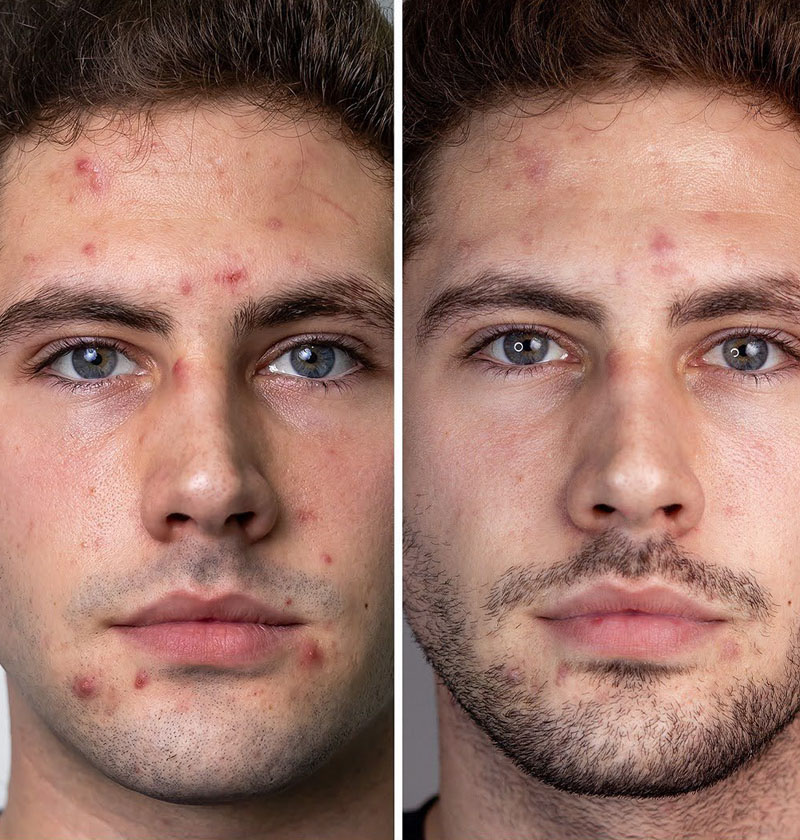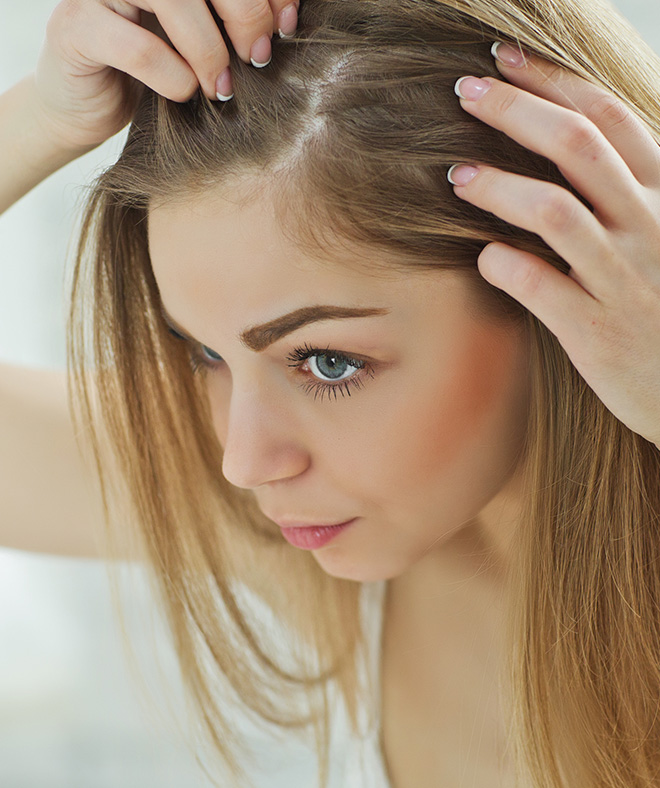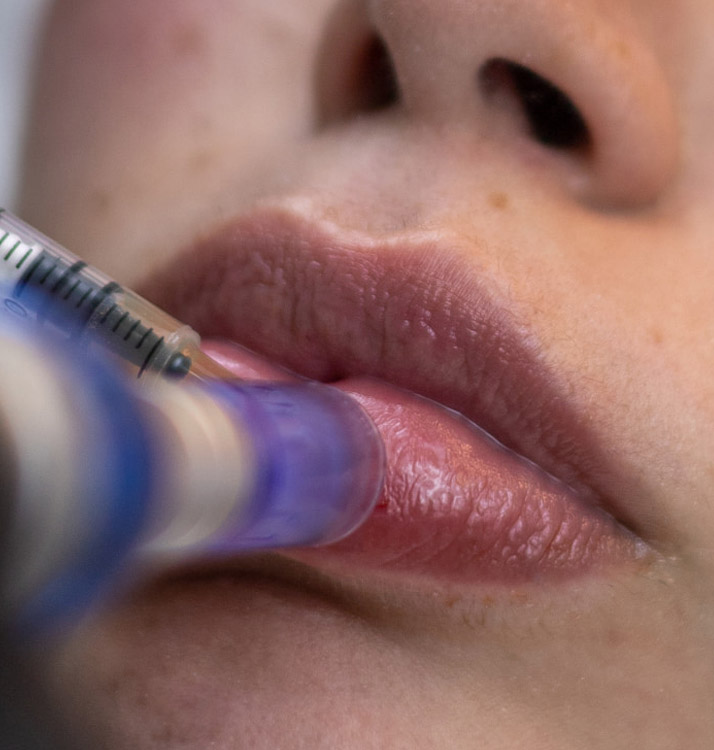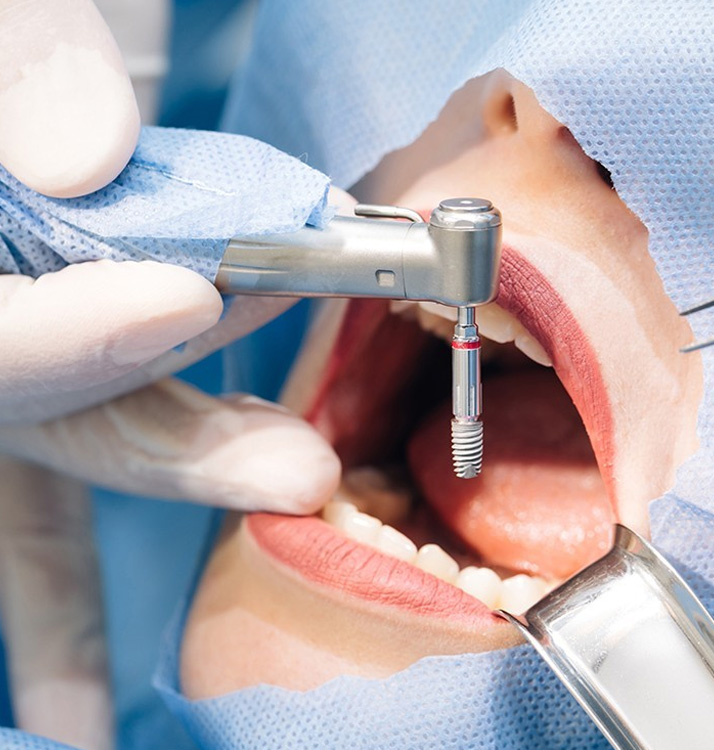What Is Acne?
Acne is a skin condition that arises when hair follicles below the skin surface become congested. A combination of sebum, the skin’s natural oil, and dead skin cells, causes this congestion, resulting in the formation of pimples or acne.
Acne typically manifests on the face, but it can also emerge on the back, chest, and shoulders. How does the inflammation happen?
The pores are clogged by a blend of sebum, hair, and keratinocytes – a type of skin cell – which obstructs the follicle opening. This blockage fosters the growth of bacteria normally residing on the skin. This triggers inflammation, which is characterised by swelling, redness, heat, and discomfort.
What Causes Acne?
Medical studies confirm that the following elements lead to acne:
- Excessive production of oil in the pores
- Accumulation of dead skin cells
- Bacteria in the pore
In addition to these causes, there are some factors that can increase acne development. It is important to understand them to find out the best solution to remove acne effectively.
Hormonal Factors
Acne’s root cause can be related to hormonal imbalances.
Hormonal triggers like puberty and menstrual cycles can lead to acne. Pregnancy and conditions like polycystic ovary syndrome (PCOS) can also cause it.
Increased androgen levels, prevalent during these periods, cause intensified oil production, leading to aggravation of acne symptoms.
Diet and Lifestyle
Dietary choices and lifestyle habits have a significant impact on acne development.
High glycemic index foods, dairy consumption, and excessive intake of sugary or processed foods can aggravate acne symptoms.
Additionally, stress and inadequate sleep may also contribute to its persistence.
Genetic Predisposition
Genetics play a crucial role in acne development too. If one or both parents experienced acne, the likelihood of their children facing similar issues can increase. Genetic factors impact sebum production, the body’s inflammatory response, and the skin’s cell shedding process. This affects a person’s susceptibility to acne.
Understanding these genetic influences helps find personalised approaches to manage acne with effective treatments.
What Are the Different Types of Acne?
Acne creates different kinds of pimples. Doctors call clogged or big hair follicles with the technical name “comedones”.
There are various types of acne:
- Whiteheads. These stay under the skin and form white bumps because of clogged follicles.
- Blackheads. Follicles that get clogged and reach the skin surface, looking black because of the air’s effect on the skin’s oil, not because they’re dirty.
- Papules. These are inflamed and show up as small, pink bumps on the skin, often feeling sore.
- Pustules or pimples. Papules topped with white or yellow pus-filled bumps that might be red at the bottom.
- Nodules. Big, painful solid lumps deep within the skin.
- Severe nodular acne (also called cystic acne). Extremely deep, painful, pus-filled lumps.
How to Remove Acne Effectively?
Skincare Routine for Acne-Prone Skin
An effective skincare routine for acne-prone skin is essential. With the help of a specialist, choose the right skincare products.
Start with a gentle cleanser suitable to your skin’s type. It will wash away dirt and excess oil without stripping the skin’s natural moisture.
Add non-comedogenic products, such as an oil-free face moisturiser and water-based makeup, to prevent pore blockage.
Use targeted treatments like salicylic acid or benzoyl peroxide to address active breakouts. Peel treatments help unclog pores, while regular sunscreen application safeguards against potential skin irritation.
The first step is to consult a specialist doctor to find your routine and personalised treatments for an optimal skin health.
Home Remedies and Natural Treatments
Various natural options can complement skincare routines.
Tea tree oil is useful for antimicrobial properties. It can be diluted and applied topically to affected areas to reduce acne-causing bacteria.
Additionally, ingredients like aloe vera, with soothing effects, or witch hazel, with astringent properties, can help calm inflammation and reduce redness.
Natural exfoliants like oatmeal or honey can gently cleanse the skin without causing irritation. Including in your diet foods rich in omega-3 fatty acids, antioxidants, and probiotics may also support overall skin health.
However, it’s essential to consult with a healthcare professional to find the best remedies, to ensure suitability and avoid potential adverse reactions.
Medical Procedures
There is a wide range of medical therapies for acne, from prescription medications to various dermatological procedures.
Prescription medications often include topical treatments like retinoids, which help unclog pores and regulate skin cell turnover. Antibiotics, both topical and oral, are used to reduce acne-causing bacteria and inflammation. In more severe cases, oral medications like isotretinoin might be prescribed to address deep, persistent acne.
Dermatological procedures such as chemical peels, laser therapy, or light-based treatments target acne. They reduce oil production, kill bacteria, and aid in skin rejuvenation.
These procedures are recommended for moderate to severe acne or when topical treatments prove insufficient.
Consulting doctors in a clinic specialised in skin treatment helps determine the most suitable medical intervention based on the severity and specific needs of your acne condition.
Acne Prevention Strategies
To prevent acne and to keep healthy skin after acne treatments, lifestyle changes are the key.
Start with simple adjustments. Regular cleansing, avoiding harsh scrubbing, and using non-comedogenic products make a significant difference.
Additionally, maintaining a balanced diet with fewer processed foods can promote clearer skin. Incorporating more fruits, vegetables, and foods rich in omega-3 fatty acids can help too.
Long-term maintenance involves consistent skincare routines, adequate hydration, managing stress levels, and protecting the skin from excessive sun exposure with sunscreen.
Adopting these lifestyle adjustments and dietary modifications can prevent acne. They can also help maintain clear skin after successful acne treatment.
So, How Do I Get Rid of Pimples?
First of all, you have to understand what causes your acne. You also have to employ effective removal techniques and implement preventive measures.
Addressing causes such as hormonal imbalances, diet, and genetics is crucial. Simple steps like gentle cleansing, targeted treatments, and a consistent skincare routine can aid in removal and prevention.
Yet, it’s essential to seek professional guidance, especially for persistent or severe acne cases. Dermatologists can offer personalised solutions, prescribe medications, or suggest treatments like chemical peels or laser therapy.
Specialised dermatology clinics often offer tailored treatments like the perfection peel, designed to target acne concerns effectively. A chemical solution is applied to your skin to exfoliate the outer layer of dead skin cells. It also unclogs pores and reduces acne scars.
Clinically supervised treatments like these can complement skincare routines, providing a more targeted approach to treat acne.
While adopting a consistent skincare regimen at home is essential, seeking the expertise of dermatologists and exploring specific treatments it’s a proactive step towards healthier skin.



